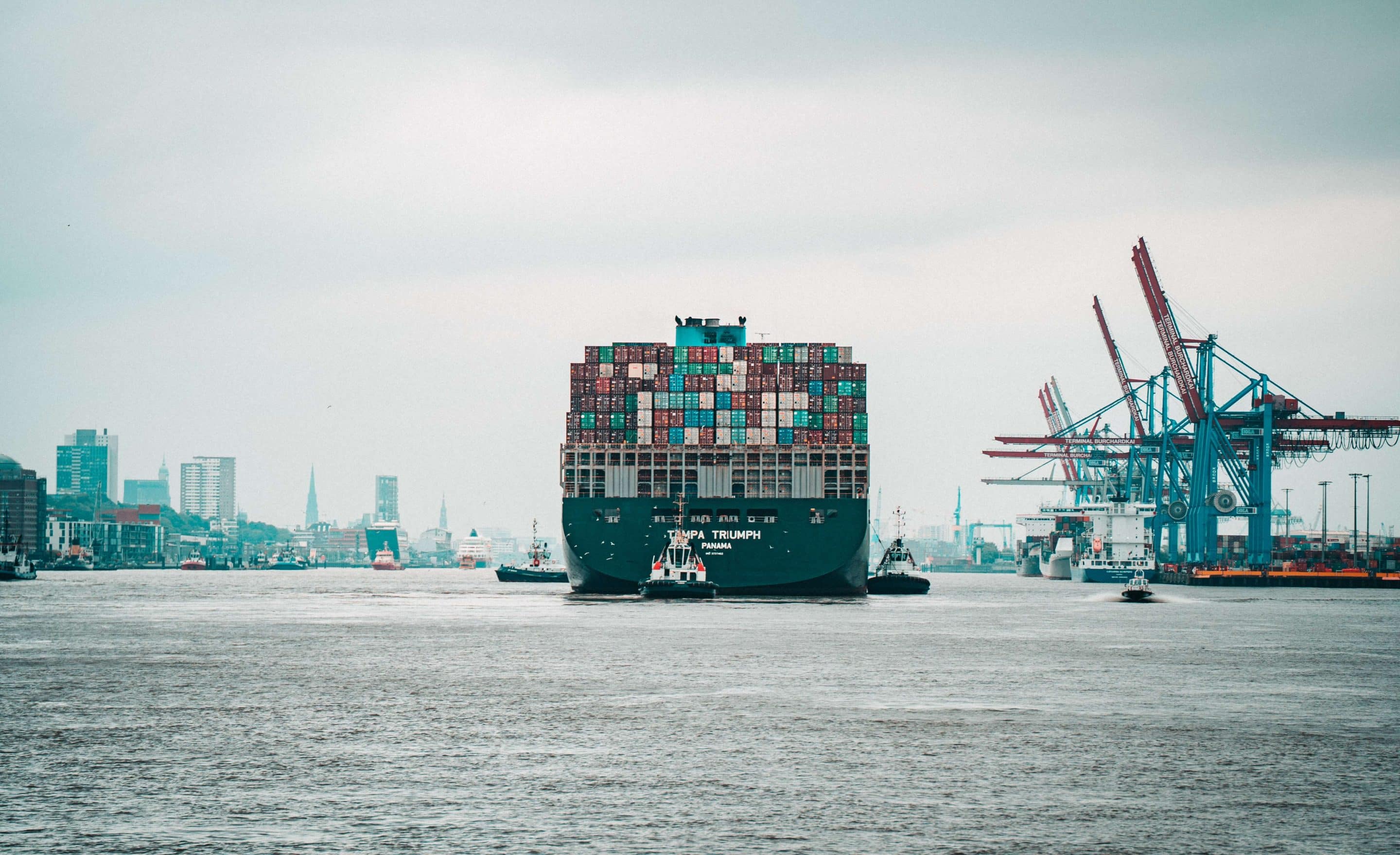Many aspects of our lives have been affected by social factors, creating waves and shifts. Social implications weigh more and more heavily on people’s decisions, from how we assess how firms operate to the products we buy. There is no question that how we approach issues like social impact theory or diversity and inclusion will impact society.
There are numerous ways to have social impacts, even without a simple solution for companies and organizations to lower social expenses. Many companies, groups, and foundations actively work to have a bigger and better social impact.
Corporate social impact is more important than ever before. As a result, consumers are increasingly interested in how companies give back to their communities and how they make a difference around the world.

If you’re looking for inspiration or want to learn more about some amazing corporate social responsibility initiatives, read on! In this blog post, we will discuss 14 corporate social impact examples that you should know about.
What Is Social Impact?
Any major or advantageous improvements that end social injustice and problems or address them are considered to have a social influence. Businesses or companies can achieve these aims through conscious and intentional efforts or activities in their operations and administrations.
Businesses and organizations constantly impact the public and their customers, albeit in varied ways. However, social impact focuses on these parties’ direct advantages to society.
Numerous industries and areas have the potential to have an impact on society. The public, private, multiple, and fourth sectors play different roles in providing for the community. These sectors opt to operate using particular objectives and strategies to have the greatest possible societal impact.

Social impact began as a way for people to give back to the less fortunate. Since the beginning of time, many individuals and companies have been willing to provide a helping hand. Thus philanthropy is nothing new.
Why Social Impact Is Important
The importance of changing the world cannot ever be overstated. No matter how little, every effort has a social influence many may not know. It goes beyond promoting workplace equality or developing environmentally friendly products to reduce waste. Some of the importance are;
- Many other facets of our life will prosper if one element of society does well. Larger and better modifications may result from this. The 17 Social Development Goals support various facets of society in various capacities and methods.
- Additionally, social influence benefits others as well. Other lifeforms on Earth can have a chance to flourish when companies and organizations intentionally pick sustainable ways to operate. In the past, numerous industries seriously harmed the environment.
- Through social impact, opportunities that might not otherwise be accessible to minorities or the poor are produced. For example, communities can acquire access to gender equality, safe water, high-quality education, and decent employment opportunities, among other things.
Why Is Social Impact Significant for Business?
Companies cannot afford to disregard their larger stakeholders’ social influence or concerns. When you’re prepared to include social impact in your company’s goal, you must decide which problem to emphasize. Consider using the principles of your company to guide this decision-making. Make sure to select a project that plays to your skills.
- In the past, numerous industries seriously harmed the environment. However, companies can now pick greener operating practices and produce fewer byproducts while keeping social impact in mind.
- As a result, you’ll be in a stronger position to succeed both in the long and short run if you integrate the pursuit of positive impact into your company’s purpose. Not only will you contribute to making the environment more sustainable, but you’ll also have a moving narrative that engages clients on a deeper level.
- Investing in a social impact program is worthwhile for companies with an eye on the bottom line. Customers are prioritizing a company’s commitment to helping their community. Therefore, it is critical to be clear about your plans and to carry them out.
- Participating in social impact has become more vital in enhancing client satisfaction. In addition, companies recognize that their health and longevity depend on the world at large as economic gaps increase, climate change’s environmental repercussions become more pronounced, and a racial reckoning is approaching.

- Moreover, using your influence as a company to further the common good will motivate others in the industry. Your thoughts and deeds may inspire customers and other businesses to consider how they can contribute to the solution.
What Does a Social Impact Strategist Do?
A social impact strategy is a method for organizing, monitoring, and attributing an organization’s efforts and deeds to constructive social change. A social impact strategist is aware of these relationships, considers the various stakeholders (investors, the executive team, employees, clients, suppliers, and society) in a firm, and develops a quantifiable strategy to produce favorable social results.
How to Make Social Impacts
Social impact can take many different forms. It goes beyond only generating headlines with motions or treating illnesses. Simpler activities that may only influence one individual might have a significant impact. Let’s look at some simple actions you may take to impact a significant social change.
- Practice Random Acts of Kindness
Small, impromptu acts of kindness, such as grinning at a stranger or holding the door open for them, can have a significant positive social consequence. These spontaneous acts of generosity can occasionally even cause a chain reaction that spreads far beyond the original perpetrator. The best part is that making a positive influence doesn’t need much planning or effort.
- Create a Mission-First Business
Business owners can impact social change by starting a mission-driven company. A mission-first firm is focused on a socially significant mission but can still be a for-profit company. The company strongly emphasizes having a positive social impact and producing revenues.

- Volunteer in Your Community
You don’t necessarily need to find a new group to benefit your neighborhood. You may volunteer instead with a group promoting social change. You may support these groups and enable them to keep offering essential services to the community by giving your time to volunteer work.
- Vote With Your Wallet
Customers have power, as any company understands. This implies that individuals can influence social change by purchasing products exclusively from socially responsible companies.
If numerous customers stop buying their items, businesses will take notice. Unethical businesses will be pressured to comply when enough consumers back socially conscious businesses or risk going out of business.
- Giving Grants
You can either work on strengthening your procedures to do less harm or turn outside to support the neighborhood through grantmaking or corporate giving initiatives. Although having a positive social impact might benefit your brand, your brand should never be the main focus of your activities. Instead, center the neighborhood and be yourself when you are there.
14 Corporate Social Impact Examples
1. A+ Federal Credit Union: Giving to Teachers
A+ Federal Credit Union was established in 1949 as a financial cooperative by a group of teachers. It has served as a focal point for the community in central Texas for over 50 years. A+ has prioritized assisting educators and educational institutions in the area through grants, scholarships, and other innovative approaches.
Teachers can now apply for grants from A+ Federal Credit Union to assist them in purchasing supplies and equipment for their classrooms. The A+ team has also produced personalized cash-back debit cards that benefit nearby schools and given scholarships to students pursuing degrees in education.
2. Anchal: Empowering Artisans Around the World
Anchal is a nonprofit organization that runs like a company, with a foundation in collaboration and empowerment. Anchal, a Louisville, Kentucky-based organization that collaborates with women throughout India, aims to give women a safe and practical exit from the harmful and exploitative commercial sex trade.
Anchal provides artists with design instruction, the appropriate tools, financial education, health care, a global market, and fair remuneration rather than gifts. This enables artists to work safely and creatively while earning money to sustain their households.

3. Biolite: Providing Sustainable Energy Solutions for Rural Societies
BioLite, a company based in Nairobi, Kenya, aims to increase access to renewable energy for those living in remote locations without a dependable electrical system. The team at BioLite makes environmentally friendly outdoor appliances for cooking, lighting, and energy storage.
BioLite has provided solutions to more than 1.7 million people in Africa and Asia by collaborating with partners in 23 countries, resulting in a carbon offset of over 450,000 tons. In addition, customers who purchase BioLite goods contribute to a more excellent vision of a healthier, more equal, and cleaner world.
4. ÉMinence Organic Skin Care: Delivering Quality Meals to Ill Children
Éminence Organic Skin Care was established in Hungary in 1958 and has earned a reputation for using high-quality organic ingredients. To supply organic fruits, vegetables, soups, and juices to kids in hospitals and long-term care homes, Éminence established the Éminence Kids Foundation in 2013.
The Éminence Kids Foundation is structured around the idea that nutritious meals play a significant role in healing and therapy. The Foundation has sent thousands of pounds of food to sick children around the world by collaborating with local farms and engaging volunteers.
5. Hope Foods: Breaking the Silence on Suicide
The hummus from Hope Foods was first offered at the Boulder farmers market and is now stocked in supermarket stores all around the country. The brand has a strong emphasis on physical and mental well-being. By speaking out about suicide and offering resources for those in need, Hope Foods wants to spread hope.
Hope Foods has found a straightforward way to participate in the conversation by dedicating a significant chunk of its website to tools and services for people managing anxiety and depression.
Additionally, Hope Foods has a partnership with Hope for the Day, a group dedicated to educating and preventing suicide. Hope Foods sponsors activities, contributes materials, and develops initiatives through collaboration to make a genuine difference.

6. Bitty & Beau’s Coffee: Building a Business on Inclusion
In January 2016, the first Bitty & Beau’s Coffee location opened in Wilmington, North Carolina. Bitty & Beau’s is committed to hiring people with intellectual and developmental impairments and is more than just a coffee business.
Working can help people with intellectual and developmental disabilities become independent and included in society. Bitty & Beau’s has achieved amazing success, growing from a single little shop to five locations with over 120 employees, thanks to a workplace that prioritizes community and education.
7. Brooks Running: Making Diversity a Priority
Brooks Running has offices in Seattle and Amsterdam, producing quality running gear. By funding running organizations and fostering an inclusive workplace for all its employees, regardless of their backgrounds, genders, nations, sexual orientations, abilities, or situations, the Brooks Running team promotes diversity, equity, and inclusion in the running community.
Grants and sponsorships from Brooks Running are given to organizations like Black Girls Run and Front Runners, an LGBTQ+ running group. Additionally, the organization donates goods and money to underfunded schools, assisting thousands of students in getting started.
8. Charlie’s Heart Foundation: Uplifting Families
Charlie’s Heart Foundation, based in Charlotte, North Carolina, aims to support families in remaining together despite challenging circumstances. The Foundation awards funds to local nonprofit organizations working globally to further their objectives.
For instance, to assist families in the suburbs of Addis Ababa, Ethiopia, Charlie’s Heart collaborated with the Addis Jemari Family Empowerment Program. The Addis Jemari Program fosters partnerships and offers aid to needy families, including skill development, medical care, counseling, and financial literacy.
9. Desolenator: Creating Clean Water Solutions
Desolenator, a company with a facility in the Netherlands, is attempting to revolutionize current water purifying techniques by developing a brand-new approach to harvesting solar energy. The old process’ harmful elements—centralized industrial plants, hazardous chemicals, and complex supply chains—are likewise eliminated by Desolenator’s technology.
Desolenator has collaborated with companies like Carlsberg to develop and fund fresh, clean water initiatives. The Desolenator team has been putting solutions into action worldwide, notably in West Bengal and Dubai locations. Visit this Submittable webinar featuring Louis Bleach, Development and Impact Lead at Desolenator, to learn more.

10. Gibson: Championing the Arts
For over 125 years, Gibson has produced high-quality guitars and established itself as a household name among aspiring musicians. Gibson established the Gibson Foundation in 2002 to create, develop, and support music initiatives to focus its charitable giving further.
Gibson has discovered numerous methods to make a difference by capitalizing on what makes the company firm. For example, the Gibson staff collaborates with regional charities like the Playing for Change Foundation, which runs 15 music initiatives in 11 nations. The Gibson Foundation also arranges benefit concerts, runs raffles, gives guitars to schools, and does other things.
11. The Gathering for Justice: Pursuing Racial Justice
The Gathering for Justice, founded by Harry Belafonte in 2005, unites many generations. This group, which has roots in Kingian nonviolence, aspires to support neighborhood leaders and create a grassroots movement for racial justice.
The Gathering for Justice unifies its members through conferences, training, workshops, and other events emphasizing police accountability and a goal to eliminate mass incarceration. Through donations and direct action initiatives, The Gathering additionally assists the neighborhood.
12. Klean Kanteen: Going Carbon Neutral
The California-based Klean Kanteen firm makes quality water bottles and insulated containers. The company, however, has also earned a reputation for supporting environmental causes.
Klean Kanteen has demonstrated its commitment to decreasing emissions over the past ten years by following Climate Neutral’s three-step procedure to become completely carbon neutral.
Klean Kanteen developed a calculated strategy to cut emissions. This included the team’s 2017 undertaking to set up 216 solar panels at the company headquarters. Additionally, the company bought renewable energy credits and carbon offsets, donating 1% of revenues to 1% for the Planet.

13. Lego: Committing to an Ethical Supply Chain
The strategies of the multinational toy corporation LEGO can have a significant impact on regional economies. Because of this, the organization is dedicated to safeguarding people and the environment at every stage of the LEGO-making process.
LEGO’s “12 Responsible Business Principles” document outlines expectations for all vendors, manufacturing facilities, and partners. This document contains obligations relating to openness, ethics, and workers’ rights about fair pay, reasonable work hours, health and safety, child labor, family-friendly workplaces, and environmental impact.
In addition, LEGO ensures that it safeguards both the people and the resources that help manufacture its product by conducting in-depth assessments and third-party audits.
14. Steam Whistle: Going Green
Independent Canadian brewery Steam Whistle is learning that there are times when doing more means doing less. So the brewery has introduced green methods to assist in the local and international fight against pollution and climate change.
Steam Whistle has chosen to use sustainable cooling and heating methods in addition to clean, renewable energy. The team uses biodiesel in their delivery trucks and is strategic about conserving water. Steam Whistle has earned the community’s trust by looking for ways to become green across the business.
Conclusion: How Corporate Social Responsibility May Improve Your Business
Today’s consumers aren’t just looking for high-quality goods; they also want to back companies that make a difference in the local and global communities. So moving from excellent intentions to a sound strategy can be a large step when you try to incorporate social impact into your company’s goal.

First, you may advance your ideas by defining a clear mission, establishing goals, defining success, and forming a solid team. Then, create something especially yours using inspiration from social impact examples like the ones above.

